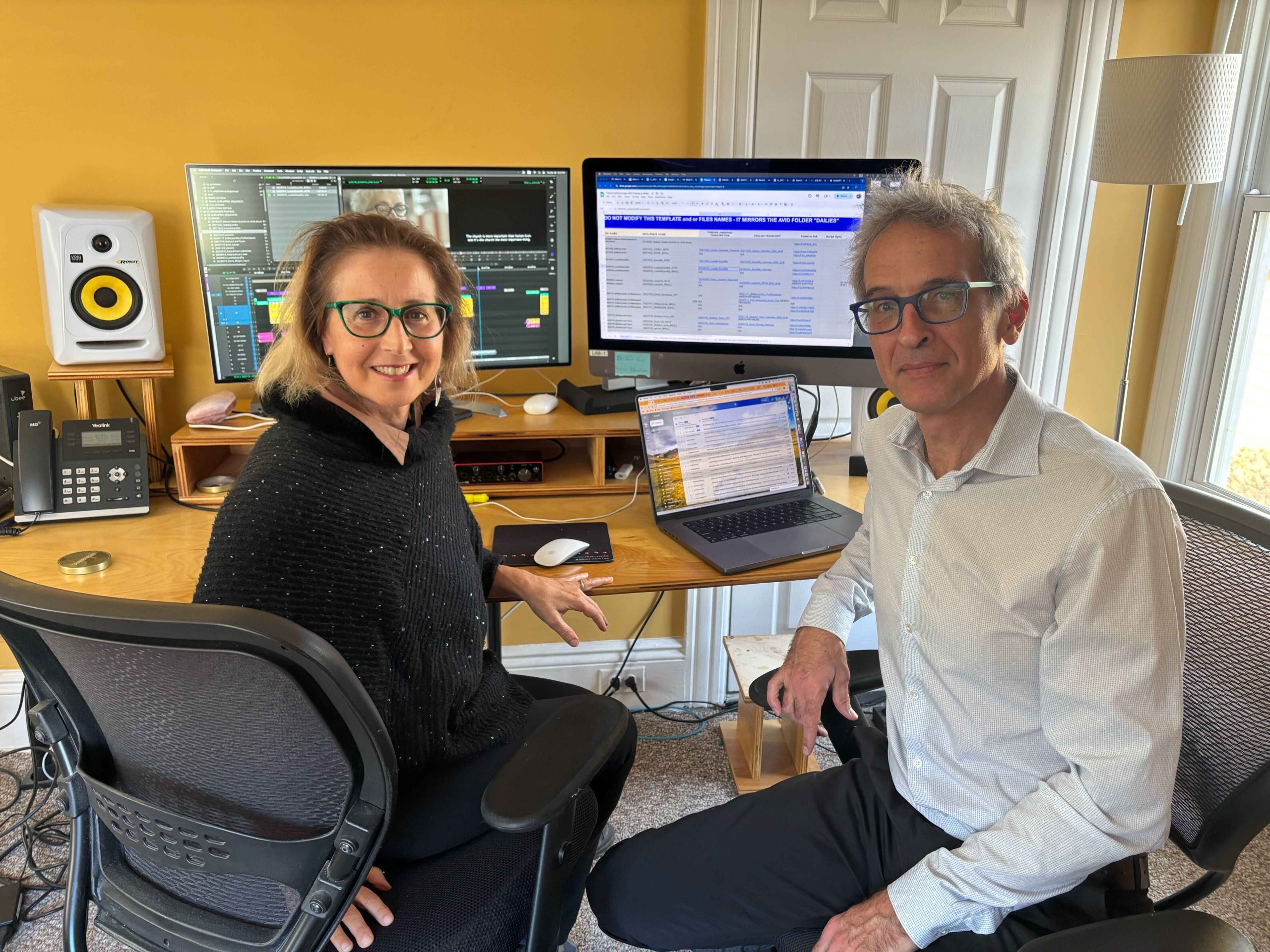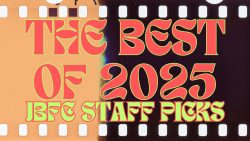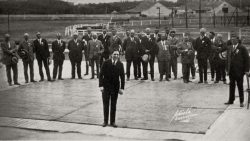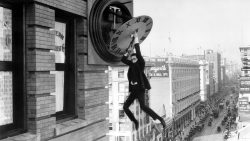Posted December 11, 2024
Artists-in-Residence: Lorena Luciano & Filippo Piscopo
Update as of 9.12.25: Nuns vs. The Vatican made its world premiere at the 2025 Toronto International Film Festival to sold-out screenings. The film was supported by Mariska Hargitay (Law & Order: Special Victims Unit, I Am Evidence) as an Executive Producer, and we’re especially proud to celebrate its journey, as directors Lorena Luciano and Filippo Piscopo developed it during their time as JBFC Artists-in-Residence.


As part of our ongoing interviews with Artists-in-Residence at the Jacob Burns Film Center, we caught up with filmmakers Lorena Luciano and Filippo Piscopo earlier this month to discuss their current work-in-progress.
Lorena and Filippo’s nonfiction project #NunsToo was selected for the 2024 Sundance Institute Documentary Edit Intensive, which was advised by filmmakers Mike Palmieri and Donal Mosher this past summer at the Jacob Burns Film Center. #NunsToo explores how, in the shadows of the Catholic Church, nuns have endured unspeakable abuse at the hands of male clergy. But now, a group of courageous women breaks the silence, defying the institution that once silenced them. In a powerful story of resilience, these survivors find their voices, inspiring a movement challenging the very foundations of faith and power.
During their monthlong residency at the JBFC, Lorena and Fillippo will continue post-production work on their vitally important documentary—hear from the filmmakers themselves in our interview below:
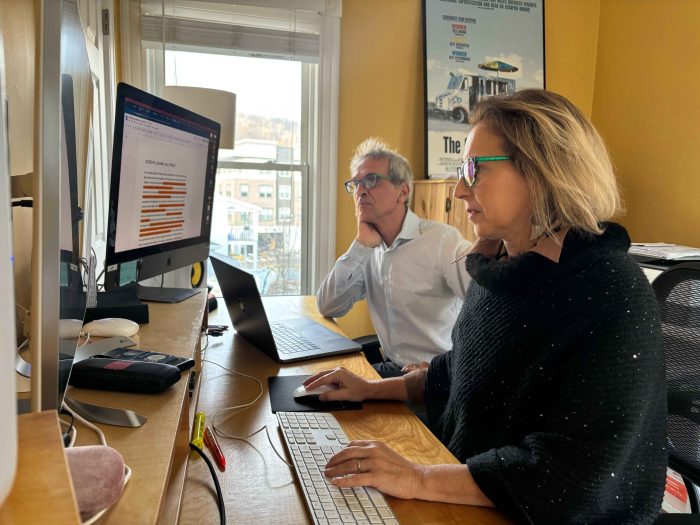
- How did this residency come about, and how did you learn about the Burns?
[FILIPPO PISCOPO]: “We’ve always admired the Jacob Burns Film Center’s outstanding programming, and we often attend screenings and events from our home in Brooklyn. In July, our documentary #NunsToo was selected for the 2024 Sundance Institute Edit Intensive Lab, which this year was hosted in Pleasantville at Burns offering the perfect mix of creative focus and a break from the city’s madness.
The Edit Intensive Lab was an incredible opportunity to work on our film with talented advisors coordinated by the Sundance Institute team and the Jacob Burns staff, including Ryan Harrington and Chris Holliday. Ryan invited us to continue polishing the edit through the Jacob Burns residency. His and Chris’s unwavering support, along with the entire JBFC team, has been invaluable.”
- Can you tell us a bit about the films you are working on during your residency?
[LORENA LUCIANO]: “We are working on #NunsToo, a feature documentary about the Catholic Church’s underreported secret of clergy abuse against nuns. Reports of clerical rapes and secret abortions within the Catholic church first came out more than 30 years ago, but the media attention has always been on the pedophile priests and the altar boys. Catholic orders systematically cover up the sexual abuse of nuns by clergy, holding ecclesiastical trials in secret and denying access to trial documents. This cloak of secrecy leaves nun survivors unaware of how to seek help. Reporting abuse is nearly impossible for them due to profound shame, guilt, and isolation, as well as lack of support within their convents and parishes, with limited financial independence and restricted freedom of movement.
It’s been challenging to find nuns open to sharing their stories on camera, but the encounter with survivor Gloria has changed the course of our film. She has allowed us to portray her journey as she denounces the alleged sexual abuse she suffered at the hands of a powerful Jesuit close to the pope, who is also a celebrity religious artist whose mosaics are displayed all over the world. As his fame becomes bigger and bigger, the allegations are kept secret. With the help of a non-Catholic feminist journalist, the story will cross the ocean, leading to revelations of cases of forced abortions suffered by female parishioners, exposing a system of abuse that has been covered up for decades.”
- What are some of the most interesting things you’ve learned while working on your film(s)?
[LORENA LUCIANO]: “The process of making a documentary can be haunting, rewarding, draining, and revelatory at the same time. This is our fifth feature documentary, and over the years, I now realize that the reason why I commit to certain subjects and their stories rather than others is mysterious. Our films are journeys into uncharted territory. I have learned to put aside the need to find definite answers and instead focus on my subjects’ process of navigating the story arc of their lives as they cope with inconvenient truths. As our films bear witness to individual stories, I am reminded over and over that life can be smooth and stable until it’s not and that such challenges cut across cultures and geography.”
- What do you want viewers to learn from your film(s)?
[LORENA LUCIANO]: “I would like viewers of #NunsToo—whether they are parishioners, religious, laypeople, non-churchgoers, influential clergy, or members of the media—to rethink the issue of power imbalance and abuse of nuns not just as a Catholic matter, but as a broader challenge to church accountability. I hope viewers will acknowledge the courage of our subjects in reclaiming their narratives and will engage in a deeper reflection on the need for transparency. I also want to reach the broader spectrum of progressive Catholics who, outraged by the silent and endemic abuse in the church, could be pivotal in sparking change in an institution hesitant to address this enduring injustice with transparency and fairness.”
- What resources did the JBFC provide to support the progress of your film’s editing?
[FILIPPO PISCOPO]: “The JBFC residency offers a wide range of essential resources to support this delicate stage of post-production of our film project. Both the house and the office, fully equipped with a non-linear editing system and backed by tailored tech support from the JBFC staff—provide an ideal environment to focus deeply on refining our film’s cut. The space is also a versatile meeting hub, enabling seamless collaboration—whether in person or virtually.”
- Which filmmakers or artists do you most admire/draw inspiration from?
[FILIPPO PISCOPO]: “Documentaries and fiction films are a great source of inspiration beyond direct similarity to our own film work. Since I became passionate about filmmaking, I’ve been deeply inspired by Italian cinema and, among many masters, I was particularly moved by the poignant work of Vittorio de Seta, whose documentaries vividly portray the lives and traditions of Italy’s rural communities. His work, deeply rooted in the Italian neo-realist tradition, blends an ethnographic approach with poetic storytelling.
As the principal cinematographer of our films, I admire the vision of Michelangelo Antonioni who depicts unresolved characters through meticulously framed, disquieting urban landscapes. I am also captivated by the raw quality of the powerful footage captured in Barbara Kopple’s Harlan County, USA, a film I deeply respect for its courage in creating a context for political struggle.
I also like films that blur the line between fiction and documentary, such as those by Abbas Kiarostami and the modern Iranian cinema movement. Additionally, I find very inspiring documentary filmmaking that merges journalism and activism to drive social change, exemplified by the impactful work of Laura Poitras.”
- Is there anything else you’d like to add?
[LORENA LUCIANO]: “In this difficult moment in history where the making of films that tell unconventional stories with creative freedom is under attack, being awarded this highly regarded fellowship carries a weighty meaning. We feel validated in taking the risk of sharing our perspectives on profound matters such as justice and accountability within the Church.
This fellowship confirms that independent storytelling is vital to fostering a sense of shared humanity, keeping our community vibrant, eloquent, and vigilant. In addition to being an honor, this recognition is a public statement about the importance of making films that matter beyond commercial considerations and serves as an invitation to keep using storytelling as a powerful tool for dialogue, introspection, and change.”
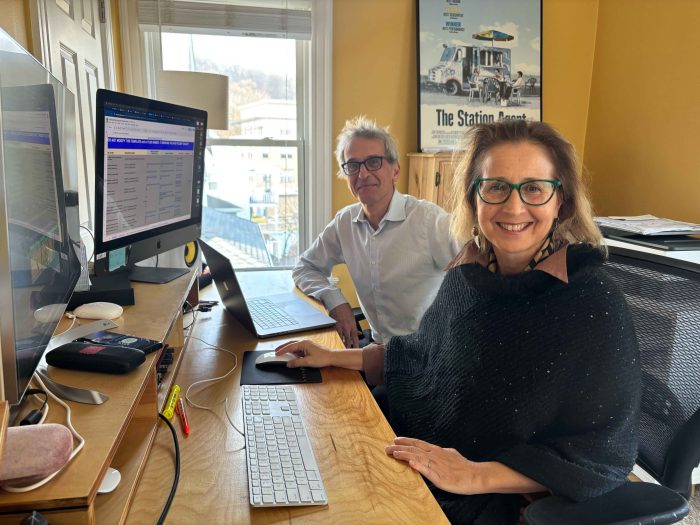
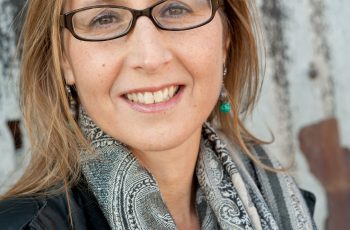
Lorena Luciano (Director, Editor) is a fellow of the Sundance Film Institute, IDA Enterprise, and the MacArthur Foundation. An indomitable storyteller, her impactful films resonate with global audiences. Her worldwide distributed work has won Best Directing and Best Documentary awards. Raised in Italy, she lives in New York City with her husband and film partner, Filippo Piscopo, and her two sons.
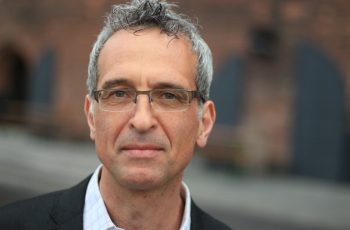
Filippo Piscopo (Producer, Cinematographer) is an Emmy Award-winning filmmaker and 2024 Academy Award nominated cinematographer of the ABCs of Book Banning. Piscopo intersects his true passion as a film producer with impactful camera work. He has crafted engaging stories featured at film venues such as the Venice Film Festival, IDFA's Central Pitch, and the IFP's Spotlight on Documentaries. Filippo's documentary work, often in collaboration with his wife and film director/partner Lorena Luciano, has been distributed globally.

This residency is presented in partnership with the Sundance Institute. Lorena Luciano and Filippo Piscopo's work #NunsToo was selected for the 2024 Sundance Institute Edit Intensive Lab; following this summer's one-week Edit Intensive at the JBFC Media Arts Lab, Lorena and Filippo have returned to the JBFC in Pleasantville to continue post-production work on their project during a monthlong residency.
